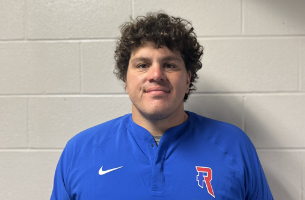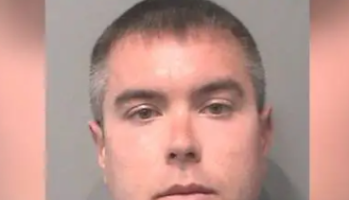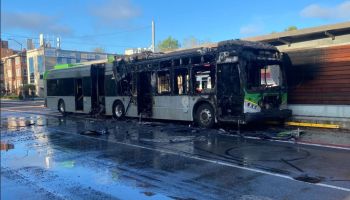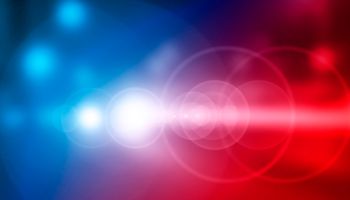MELBOURNE, Australia. — About 5 million people in Australia’s second-most populous city Melbourne are contending with some of the harshest restrictions ever imposed on the city after authorities declared a “state of disaster” on Sunday.
Police patrolled deserted streets Sunday night, enforcing an overnight curfew from 8 p.m. to 5 a.m. as part of stage four lockdown measures imposed to battle a widening coronavirus outbreak.
Those restrictions include a curfew in Melbourne for the next six weeks, a ban on wedding gatherings, and schools must go back to online classes. Only one person per household is allowed to leave their homes once a day — outside of curfew hours — to pick up essential goods, and they must stay within a 5 kilometer (3.1 miles) radius of their home.
On Monday, further business restrictions were announced, including the shuttering of non-essential industries.
The state of Victoria, of which Melbourne is the largest city, recorded 429 Covid-19 infections on Sunday, down from 671 cases the day before, according to Victoria’s Chief Health Officer Professor Brett Sutton. Thirteen new deaths were also announced, bringing the state’s total to 136, and there have been a total of 11,937 confirmed infections.
Sunday’s announcement underscores how quickly early success in containing the virus can unravel.
In May, Australia was held up as a global model for its handling of the outbreak, which started with early measures to bar entry from high-risk countries. Stricter curbs on social gatherings expanded testing, restaurant, and bar closures, followed as cases rose, with some states sealing their borders.
But Covid-19 cases in Victoria have risen suddenly in recent weeks, with many new infections in aged care homes and among healthcare workers. Eight of the 13 new deaths on Sunday are linked to known outbreaks in aged care facilities.
“This six week period is absolutely critical,” said Victoria state Premier Daniel Andrews in a daily press briefing on Monday. “This is a very tough day and there will be many more of those until we get to the end of this.”
Andrews clarified how the new restrictions will impact businesses, saying that supermarkets, grocery stores, butchers, banks, petrol stations, newsagents, and post offices, will all remain open.
From 11:59 p.m. local time on Wednesday, some businesses such as retail, some manufacturing, and some administration will close. Industries scaling back include construction and meatworks, which Andrews said was a “significant challenge for us.”
Warehousing, distribution centers, and meat processing plants will cut operations by one third, and will impose some of the “most stringent safety protocols that have ever been put in place in an industrial setting.” Workers will be “dressed as if they were a health worker,” Andrews said, with masks and gowns, shields, temperature checks, and testing.
About 250,000 people are already out of work because of the virus in the state of Victoria, and the new industry restrictions mean that number will likely double, Andrews said. About 500,000 people are currently working from home.
“The entire impact of this pandemic, which is now months old, will take us years to recover from. There’s no doubt about that,” he said.
The tough measures will be “very difficult but it’s what is necessary” to drive down coronavirus numbers, he said, “so at end of six weeks we have every chance of getting this back under control.”
“It’s hard to imagine what a stage five might look like. But it would radically change the way people live. Not just rules on when and where you can go shopping — but restrictions on going shopping at all,” Andrews said, referring to the most severe measures that could potentially be implemented into the future.
Melbourne residents had already been under strict measures for most of July after the area was identified as the epicenter of Australia’s second wave.
Ben Fessey, 30, an agricultural commodity broker living in Melbourne said there was a “heavy mood on the streets” before the new restrictions went into place on Sunday.
“It feels like it just been ongoing,” he said, adding that the different measures were “blurring together.”
Fessey said there is some frustration but “no sense that there are marches or protests from what I’ve seen. Everyone still pretty on board for the greater good.”
Outside of Metropolitan Melbourne, regional Victoria will be placed under stage three restrictions starting at midnight on Wednesday, meaning cafes, bars and restaurants must be closed. All schools in Victoria will also move back to online learning.
Patrolling police officers have been a frequent sight in Melbourne, as authorities seek to enforce rules on leaving home and on the mandatory wearing of face masks.
On Saturday, Australian Defense Minister Linda Reynolds said an additional 500 Australian Defense Force personnel were on standby to join 1,400 troops already helping with the coronavirus response in Victoria.












